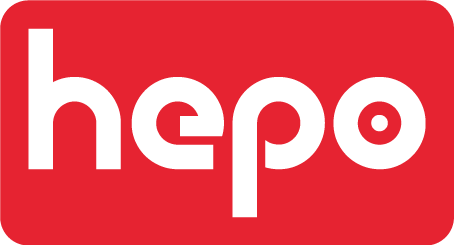Sentinel Module
Overview
Role and
Permission Management
Overview:
The Sentinel Module, part of HEPO’s Common Audit and Integrity Microservice,
provides a robust framework for role and permission management, ensuring that
every user’s interaction with data and processes is fully aligned with HEPO’s
core values of integrity, gravitas, and dignity. By meticulously regulating
user access across data types, screens, objects, and endpoints, Sentinel
embodies HEPO’s commitment to security, transparency, and ethical business
practices, safeguarding every transaction and interaction from potential
misuses or breaches. This dedication not only enhances data integrity but also
fortifies the company’s reputation by protecting sensitive information from
compromising exposure, promoting a business environment of trust and
accountability.
Key Features:
Role-Based Access Control
(RBAC):
Purpose:
Sentinel empowers organizations with an ethically structured, role-based access
framework, assigning permissions according to job functions and organizational
hierarchy. This approach is designed to ensure that each user’s access supports
secure, purpose-driven data use.
Functionality:
Through role assignment, permissions are managed by associating specific data,
screens, and functions with defined roles. This structure upholds integrity and
gravitas by limiting data visibility and interactions to necessary roles,
reducing risk exposure, and fostering trust in secure data access.
Data-Type and Object
Permissions:
Purpose:
Sentinel enables access regulation at the granular level, managing who can
view, modify, or execute functions related to specific data types and objects.
By maintaining rigorous controls over data entry points, Sentinel supports the
dignity of all business processes and prevents data from misuse or unauthorized
sharing.
Functionality:
Data type definitions in Sentinel are structured to mirror organizational
needs, allowing critical information and operational data to be accessible only
to relevant teams. This tailored approach ensures that sensitive information
remains protected, reinforcing the integrity of HEPO’s platform.
Process and Navigation
Control:
Purpose:
Closely integrated with Pandora, HEPO’s process manager, Sentinel allows
contextual navigation control based on roles and process flow requirements.
This collaboration creates a seamless connection where users only navigate
permitted paths, maintaining organizational boundaries and data security at
each stage.
Functionality:
By managing inter-process navigation and permissions, Sentinel ensures that
users only have access to essential screens and endpoints within their assigned
workflow. This dynamic permissioning fortifies security by adhering to HEPO’s
principles of integrity and responsibility in managing data interactions and
sensitive tasks.
Flexible, Self-Managed
Permissions:
Purpose:
Sentinel offers adaptable access configurations, enabling system managers and
department heads to adjust permissions as needed, without compromising security
or integrity. This agility supports scalable, ethical data governance as
organizational needs evolve.
Functionality:
Permissions are quickly configurable, allowing non-technical managers in HR,
compliance, or other departments to make adjustments with minimal IT
dependency. This self-managed flexibility aligns with HEPO’s goal to support
secure, dynamic growth and rapid response to business requirements.
Data-Level Security and
Audit Trails:
Purpose: In
line with HEPO’s emphasis on gravitas and accountability, Sentinel provides
complete traceability for data access and interactions, creating an immutable
record of user actions. This feature is instrumental in preserving the
company’s ethical standards and regulatory compliance.
Functionality:
All user activities within HEPO are logged, allowing for insightful audit
trails that promote data integrity, transparency, and protection from
reputational risks. With Sentinel’s monitoring, businesses can reinforce
accountability at every interaction point, ensuring that data handling aligns
with HEPO’s commitment to responsible governance.
Use Case Scenarios:
Data
Security in High-Sensitivity Environments: Sentinel’s modular design supports
data security for HR, finance, and executive teams, ensuring that only
authorized users can view or modify sensitive data. This capability is
invaluable for protecting personal or financial information, which underpins
HEPO’s commitment to data dignity and integrity.
Controlled
Access for Project-Based Teams: Sentinel enables temporary, context-sensitive
permissions for project teams, granting access only for the project’s duration.
This approach maintains data privacy and corporate ethics, reverting access
once the project completes to prevent unauthorized data persistence.
Compliance-Driven
Data Management: For regulated industries, Sentinel’s audit trails and
role-specific data access provide essential tools for compliance. Sentinel
aligns with HEPO’s vision of gravitas by delivering an auditable, trustworthy
data framework that meets the highest regulatory standards.
Benefits:
Enhanced
Security and Integrity: Sentinel’s comprehensive access management protects
data integrity, ensuring that sensitive information remains secure and accurate
at all times.
Streamlined
Organizational Control: The role-based framework simplifies user management,
supporting large organizations with secure, adaptable access structures that
foster trust and ethical data usage.
Accountability
and Compliance Assurance: With robust audit trails, Sentinel not only supports
compliance but also enhances corporate gravitas by demonstrating HEPO’s
commitment to transparent, traceable data security.
Flexible,
Scalable Security Model: Easily configurable permissions enable scalability,
supporting HEPO’s principles of organizational growth, adaptability, and
responsible governance.
Target Audience:
CXOs and
Security Officers: Sentinel gives executive leaders comprehensive control over
data access and security, ensuring that all data handling is aligned with
HEPO’s values of integrity and accountability.
IT
Directors and Compliance Teams: With customizable access configurations and
audit functionality, IT and compliance leaders can maintain regulatory
compliance while streamlining internal processes.
HR Managers
and Department Heads: Sentinel allows non-technical managers to quickly adjust
permissions as needed, reducing dependency on IT and supporting efficient data
management for all departments.
Summary:
The Sentinel Module is an essential component of HEPO’s Common Audit and
Integrity Microservice, dedicated to securing data integrity, preserving user
trust, and protecting organizational reputation. With its dynamic role and
permission management, granular access controls, and comprehensive audit
capabilities, Sentinel embodies HEPO’s dedication to a secure, ethical, and
adaptable platform that fosters transparency, dignity, and trust across the
enterprise. Through these capabilities, Sentinel enables businesses to maintain
data security that enhances both operational efficiency and corporate gravitas,
delivering confidence to employees, partners, and stakeholders alike.
